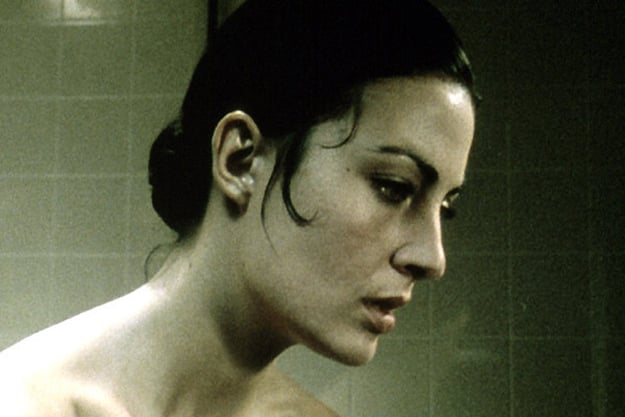Film Comment Selects: Nico Papatakis

Gloria Mundi
Rarely screened in New York, the work of Nico Papatakis is the subject of a Film Comment Selects retrospective this year for the centenary of the filmmaker’s birth. Here, Yonca Talu, writing for Film Comment’s September/October 2017 issue, discusses Papatakis’s work with actress Olga Karlatos on his 1976 film Gloria Mundi:
The final leg of The Shepherds of Disorder‘s shoot coincided with the 1967 Greek coup d’état orchestrated by right-wing colonels who abolished the Constitution and established a dictatorship that banned filmmaking. On April 20, 1967, the eve of the coup, the 48-year-old Papatakis and the 20-year-old Karlatos, who had fallen in love while working together, got married, and finished filming clandestinely as husband and wife. Because of its transgressive, provocative content and its explicit references to the coup (through a radio broadcast in the finale), The Shepherds of Disorder was banned in Greece until the dictatorship’s collapse in 1974. This interplay of fiction and reality permeates all of Papatakis’s work, particularly his next film, Gloria Mundi (1976). A product of Papatakis’s relentless obsession with the Algerian War and the subject of torture, Gloria Mundi centers upon Galaï (Karlatos), an actress preparing for her role as an Arab terrorist in a film directed by her mentor, lover, and the father of her son, Palestinian militant Hamdias. In order to fully embody her character, she practices self-torture by electrocution, desperately seeking to produce an authentic scream of pain and horror. Physically absent from the film, Hamdias is identified with the camera, into which the distraught Galaï frequently delivers frenzied looks and monologues, while his voice (that of Papatakis himself) feeds her furious instructions through a tape recorder. Deeply engrossed in her role, Galaï gradually withdraws from reality and begins to inhabit the film’s (and Hamdias’s) underground political world, carrying out revolutionary activities in support of oppressed Third World people.
Papatakis’s most psychedelic and intellectually challenging film, Gloria Mundi begins with a scream and ends with an explosion—two images that powerfully capture the apocalyptic undertones of the Latin phrase that inspired the title: sic transit gloria mundi (“Thus passes the glory of the world”). Mired in a frenetic and gloomy atmosphere, it is a melancholic portrait of the end of an era as well as a virulent denunciation of consumer capitalism and a pretentious, hypocritical left-wing intelligentsia that deems itself political but does not take any action.







